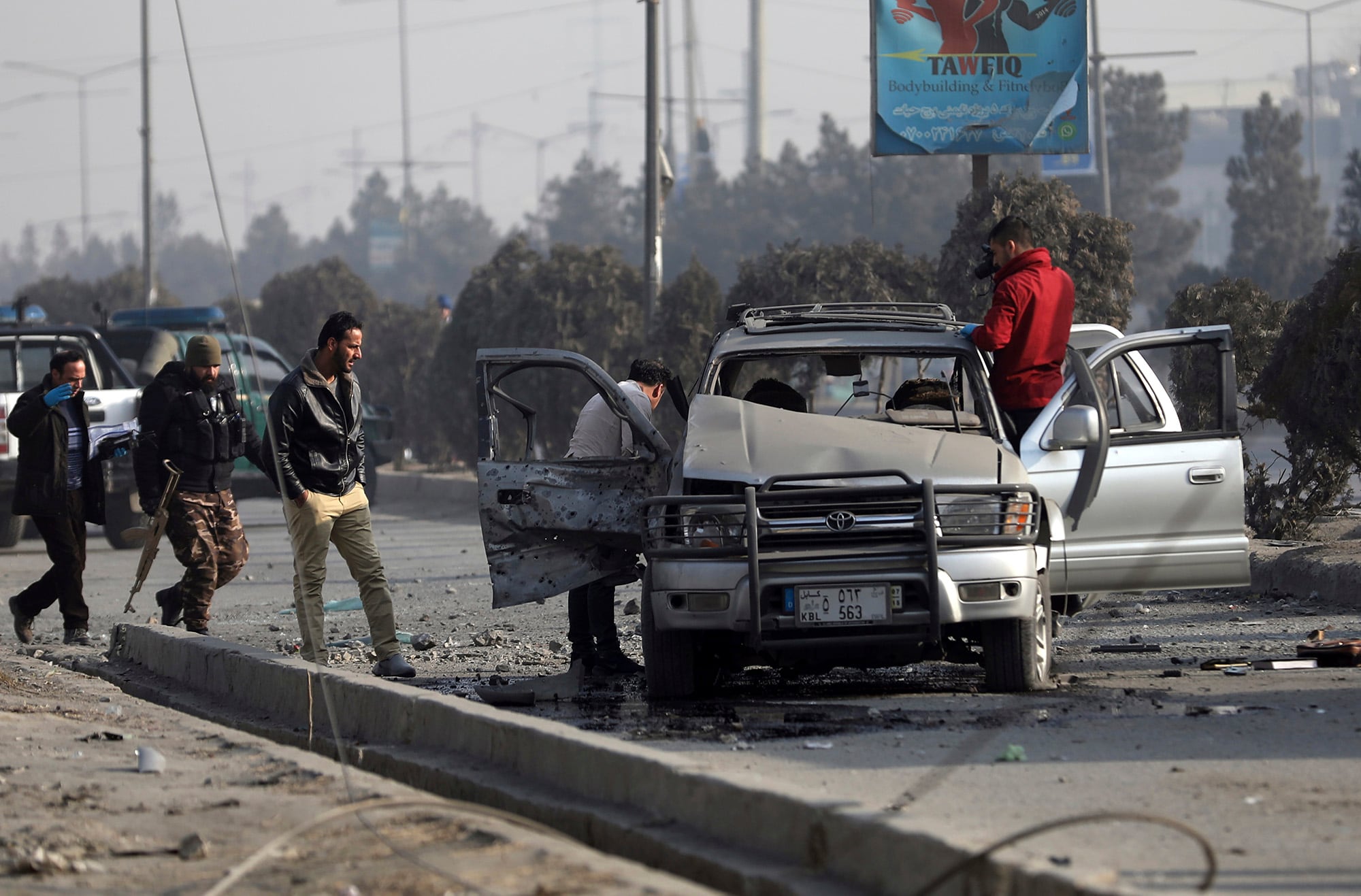WASHINGTON ― The Pentagon says fewer than two dozen civilians were killed in overseas anti-terrorism operations last year, but a pair of U.S. lawmakers doesn’t believe them.
In a letter to Defense Secretary Lloyd Austin, Sen. Elizabeth Warren, D-Mass., and Rep. Ro Khanna, D-Calif., are asking for a formal probe into potential undercounting of civilian casualties by the Defense Department, saying the issue cuts to the core of military integrity and transparency.
Last month, a Pentagon report acknowledged 23 civilian deaths and 10 injuries from the result of its operations in Afghanistan, Iraq and Somalia, during 2020. That’s a significant drop from the 132 civilian casualties the Pentagon acknowledged the previous year.
But the lawmakers believe the true number could be almost five times higher, citing Airwars, an independent group that tracks airstrikes and civilian casualties. They want Austin to review the discrepancies and to require future military probes into civilian casualties give greater weight to external information sources.
RELATED

Their June 30 letter also faults the Department of Defense for not using any of its $3 million allocation for condolence or “ex gratia” payments, which they say would have been more than enough for payments to every victim’s family.
“This is unacceptable and not how we uphold our nation’s values and advance our interests overseas. We urge you to take a more serious look at both of these issues,” the letter reads.
“We need to openly consider all the costs, benefits, and consequences of military action, and that includes doing everything we can to prevent and respond to civilian harm. Strengthening investigations, accurately and transparently reporting on civilian harm, expressing condolences for harm when it happens, and learning from these incidents to prevent harm in the future are all essential steps that reinforce the importance of protecting civilians as a national security priority and as a moral and ethical imperative.”
Pentagon spokesman Mike Howard said that no ex gratia payments were made in 2020 after leaders issued an interim regulation a year ago to comply with the annual defense policy law. The rule meant only civilians who are deemed to be “friendly to the United States” would be eligible for the payments, and civilians who assume “risks inherent in supporting military operations” are excluded.
“Numerous factors can affect a commander’s decision to offer an ex gratia payments,” Howard said.
Howard confirmed DoD is working to issue major new policy change later this year.
The Pentagon’s latest annual report on civilian casualties, published June 2, recorded 20 deaths and 5 injuries from seven actions in Afghanistan, while a United Nations arm there says international forces killed 89 and injured 31 civilians.
RELATED

For Iraq, the report acknowledged one civilian death during U.S. airstrikes targeting Iranian-backed fighters at Karbala airport on March 13, 2020. It apparently omits two civilian policemen whose deaths were publicly reported.
The Pentagon commonly acknowledges civilian casualty cases retroactively that it hadn’t acknowledged initially. The latest report added 63 deaths and 22 injuries for 2017 through 2019, mostly in Syria and Yemen.
In civilian casualty investigations, Howard said DoD seeks to use all available information, such as “operational planning data and intelligence sources” but uses different methodologies from nongovernmental organizations, international observers and the press, whose information “can be valuable [but can also be] incomplete or not necessarily valid.”
“We acknowledge there are differences between DoD assessments of civilian casualties and reports from other organizations, including NGOs,” Howard said. “DoD personnel engage with representatives from NGOs and IOs regularly to discuss reports and assessments of civilian casualties, including at both action officer and leadership levels.”
Joe Gould was the senior Pentagon reporter for Defense News, covering the intersection of national security policy, politics and the defense industry. He had previously served as Congress reporter.




